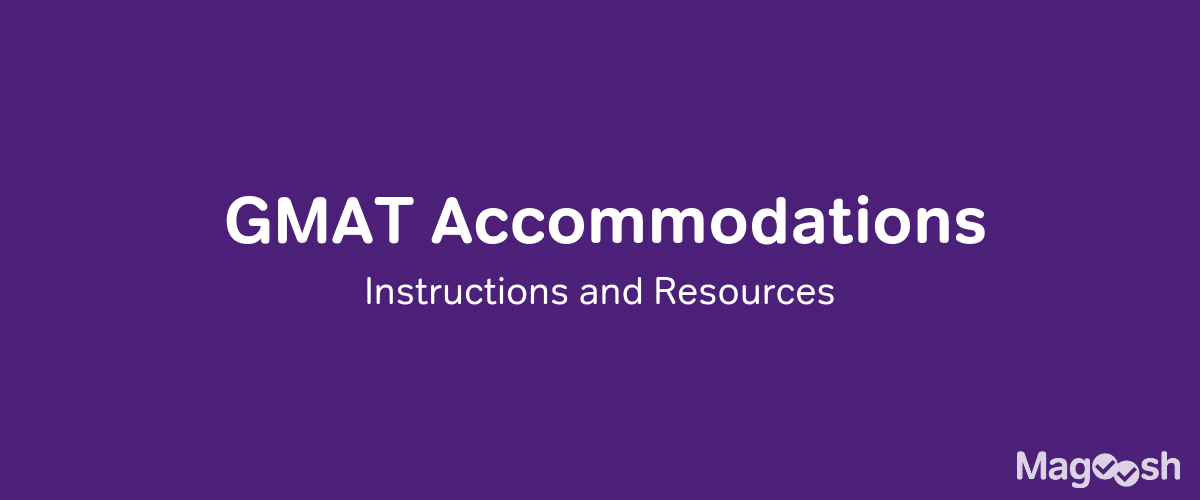UPDATE: You can find this blog and others about idioms in our new GMAT Idiom eBook!
First, a few practice GMAT Sentence Correction questions for warm-up.
1) Had the United States allowed the California Republic to remain independent after the Bear Flag Revolt rather than annexing it with military force, this “California nation” might have become the wealthiest nation in North America.
-
(A) Had the United States allowed the California Republic to remain independent after the Bear Flag Revolt rather than annexing it with military force, this “California nation” might have become
(B) With the United States annexing the California Republic after the Bear Flag Revolt instead of allowing it to remain independent, this “California nation” didn’t become
(C) The United States annexed the California Republic after the Bear Flag Revolt and didn’t allow it to remain independent, to prevent it to become
(D) The United States didn’t allow the California Republic to remain independent after the Bear Flag Revolt, it annexed it with military force instead, and this “California nation” didn’t become
(E) The United States, by not allowing the California Republic to remain independent after the Bear Flag Revolt and, instead, by annexing it, it prevented this “California nation” from becoming
2) Compared to Bach’s astonishing output of music each year over his relatively long life, Brahms, ever the perfectionist, destroyed many of his compositions and only published those few that met his high standards.
-
(A) Compared to Bach’s astonishing output of music each year over his relatively long life, Brahms, ever the perfectionist, destroyed many of his compositions and only published those few that
(B) Compared to Bach’s astonishing output of music each year over his relatively long life, Brahms’ compositions, many destroyed because of his perfection, and only those few published
(C) Bach had an astonishing output of music each year over his relatively long life, but Brahms, always a perfectionist, destroying many of his compositions and only publishing those few that
(D) In contrast to Bach having had an astonishing output of music each year over his relatively long life, Brahms, always a perfectionist, destroyed many of his compositions and only published those few that
(E) Whereas Bach had an astonishing output of music each year over his relatively long life, Brahms, ever the perfectionist, destroyed many of his compositions and published only those few that
3) While many people believe either lead or gold is the densest naturally occurring element, osmium, due to a pattern of density among the elements, holds this distinction, and they call it “Lathanide contraction.”
-
(A) osmium, due to a pattern of density among the elements, holds this distinction, and they call it
(B) it is osmium that holds this distinction, because of a pattern of density among the elements known as
(C) osmium, holding this distinction, because of a pattern of density with the elements known as
(D) osmium, holding this distinction, for a pattern of density in the elements is known as
(E) osmium, which holds this distinction, because a pattern of density among the elements is known as
Sophisticated idioms
This post discusses three relatively sophisticated idioms. All three are relatively uncommon in colloquial speech, so some native speakers might not have heard them. They are characteristic of formal language, and thus each is “fair game” for the GMAT Sentence Correction questions. Here are the idioms:
Whereas X, Y
Had A done X rather than doing Y
It is A that does X/ that is B
I will discuss each separately.
Contrast
The “whereas” is similar in meaning to “while.” The word “whereas” almost always comes at the beginning of a sentence. It is a subordinate conjunction, which means it will be followed by one full [noun + verb] clause, and after that we will need another full [noun + verb] clause for the main clause of the sentence. The full structure is “whereas” [clause #1], [clause #2]. These two clauses should be in parallel, and they should contrast one other in some essential way.
4) Whereas California contains the highest point in the lower 48 states, Alaska contains the highest in North America.
5) Whereas most professional sports, such as American football and basketball and soccer, are played against a clock, baseball is free of the influence of clock.
Hypothetical language
The next idiom is used to present not what is true, but rather what would be true under alternate hypothetical conditions. Suppose actor A, in real life, did action Y. That’s what really happened. Then we would say, “Had A done X rather than Y …”, to imagine a world different from the factual world we share, a world in which A did X instead of Y; the goal of the structure is to analyze the consequences in this alternate world. The grammatical form “Had A done X rather than Y …” is similar to an “if” clause: we need an independent main clause to follow that will state the consequence in this hypothetical world. Because this is all hypothetical, the verb of the main independent clause should be in the subjunctive.
Also, notice: if X and Y are nouns that take the same verb, we can just have a noun in the Y place. BUT, if two different verbs are needed, the “done X” place is taken by the first verb (in the subjunctive) and the Y place is taken by a gerund phrase involving the second verb.
6) Had Columbus sailed south rather than east, what would he have discovered?
7) Had the Kuomintang defeated Mao rather than retreating to Taiwan, China as a whole would have been a capitalist ally of the United States, and the Soviet Union would have fallen much sooner.
8) Had General Lee consolidated his gains in the south after his victory a Chancellorsville, rather than crossing the Potomac and invading the Maryland and Pennsylvania, the Confederacy could have held out much longer, perhaps fighting to a stalemate.
Emphatic language
The final idiom, rarely used, is appropriate only when extraordinary emphasis is needed. The difference between (a) A does X, and (b) It is A that does X is subtle: both communicate the same factual information, but the latter emphasizes, perhaps contrary to expectations, the significant role that A has at the actor or subject in the sentence. This structure is not appropriate for conveying an ordinary fact. It is only appropriate when the context requires unique emphasis on the identity of the subject.
9) In the late 1950s and early 1960s, many ministers of the Nation of Islam were identified as radicals, but it was the skilled orator Malcolm X who drew the most FBI attention.
10) Paris is rich in historical and artistic treasures, but it is the Eiffel Tower that most tourists want to see.
Summary
If you had any flashes of realization while reading, you may want to give the practice questions at the top a second look before reading the solutions below. Know the idioms given in bold in this post. As always with idioms, read, read, read! Search for the idioms in this post in context. You understand English best when you understand it in context.
Practice Question Explanations
1) Choice (A) follows the exact pattern of the idiom discussed in this blog — first verb (“Had … allowed“) in the subjunctive and second (“annexing“) as a gerund, and the independent clause after the comma is in the subjunctive. This is quite promising.
Choice (B) uses the preposition “with” as a quasi-subordinate conjunction, with the construction “with” [noun][participial phrase]. The GMAT considers this incorrect 100% of the time. Also, the independent clause after the comma is in the indicative mood, giving the mistaken impression that the “California nation” actually existed. (B) is not correct.
Choice (C), up to the comma, is promising — a factual statement of what the US did and didn’t do, and the infinitive of purpose in the second half is fine, but unfortunately, this choices makes an idiom mistake. The idiom with “to prevent” is “to prevent A from doing X“, NOT “to prevent A to do X.” Because of this idiom mistake, (C) is not correct.
Choice (D) is an example of false parallelism, putting the three verbs of the sentence into the grammatical relationship of parallelism without considering their logical connection. Everything is in the indicative, so the hypothetical nature of the “California nation” is lost. Perhaps most significantly, this makes a major pronoun mistake: “it annexed it” — a repeated pronoun for two different antecedents. (D) is not correct.
Choice (E) has makes double subject mistake — “The US [long modifier] it prevented …” Either “the US” or “it” has to be the subject of “prevented” — both cannot be the subject simultaneously. Also, ” … annexing it, it prevented …” — this choice makes the same kind of repeated pronoun mistake found in (D). (E) is also not correct.
The only possible answer is (A).
2) Split #1: position of the word “only” — which is correct? (a) “only published those few“, or (b) “published only those few“? The latter correctly say that, in contrast to the large number Brahms destroyed, only a few were published. In the former, the adverb “only” applies illogically to the verb “published” — as if Brahms might have done some action more serious than publishing but instead settled on “only” publishing them. That makes no sense. Each choice in which “only” precedes the verb is wrong. Choices (A) & (C) & (D) make this mistake.
Split #2a: comparisons. Choice (A) compares Bach’s music to Brahms the person, a faulty comparison. Choice (B) correctly compares Bach’s music to Brahms music. Choice (D) correctly contrasts Bach the person with Brahms the person.
Split #3: the missing verb mistake. In choice (B), there’s no verb in the entire sentence. Choice (C) attempts a “but” construction, and before the “but” is a bonafide independent clause, but after the word “but”, there’s no verb to make that second half another independent clause. Both (B) & (C) make this mistake.
Split #4: “always the perfectionist” vs. “ever the perfectionist.” This is a false split. Both are perfectly fine.
Split #5: too much after a preposition. The “in contrast to” structure ends in preposition, and that preposition can take a single noun, as well as a gerund or a substantive clause. The GMAT, though, does not like the construction [preposition][noun][participial phrase] — if you want to talk about that much action, use subordinate clause with a full [noun]+[verb] structure. Choice (D) makes this mistake, “in contrast to Bach” + a long participial clause. The GMAT would not find that acceptable. Choice (D) is incorrect.
For all these reasons, (E) is the only possible answer.
3) Choice (A) illogically suggests that osmium itself, the very existence of the element itself, is “due to a pattern of density among the elements“. Furthermore, the final three words of (A) are a disaster — “they call it” —- (a) who is “they”? This pronoun has no antecedent in the sentence; (b) the antecedent of “it” is grammatically ambiguous — it could be osmium, or the pattern, or the distinction. (A) is incorrect.
Choice (B) uses the emphatic construction discussed in this post — appropriate, because osmium is contrary to many peoples’ expectations on this question. The rest is grammatically correct. This is a promising choice.
The section before the underlined section is a subordinate clause beginning with “while”, so the independent clause, the main clause of the sentence, must come in the underlined section. Choice (C) has no verb, and thus would create a sentence with no verb. This is the missing verb mistake. (C) is incorrect.
Choice (D) has an odd construction. After the initial subordinate clause, it has a noun + modifier “osmium, holding this distinction”, then a conjunction and an independent clause. This has the effect of leaving “osmium” as a free-floating noun in the sentence, not part of any clause. Furthermore, the “for” clause would introduce an explanation, but here, it illogically suggests that what the pattern is called, not the pattern itself, is the explanation of osmium’s properties. (D) is incorrect.
Choice (E), like choice (C), has no verb, and thereby creates a sentence with no main verb. Furthermore, the “because” clause suggests illogically that what the pattern is called, not the pattern itself, is the explanation of osmium’s properties. (E) is incorrect.
The only possible answer is (B).






Leave a Reply